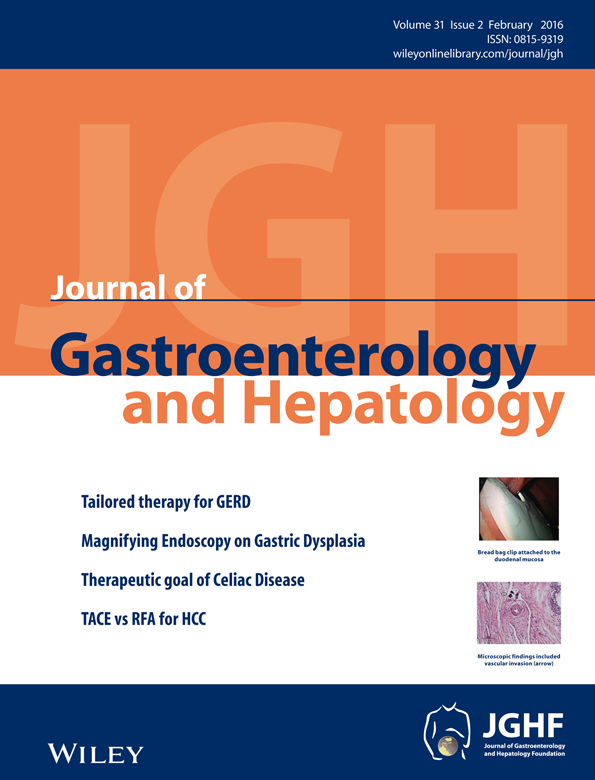Comparison of transarterial chemoembolization with radiofrequency ablation for unresectable Barcelona Clinic Liver Cancer stage 0/A hepatocellular carcinoma: a propensity score matching
Abstract
Background and Aim:
Radiofrequency ablation (RFA) is recommended as one of the standard treatments for early hepatocellular carcinoma (HCC). Because of high-risk tumor locations unfit for RFA, transarterial chemoembolization (TACE) is served as an alternative option in these settings. To define the role of TACE on early HCC, we retrospectively compared the efficacies of TACE with RFA in patients with unresectable Barcelona Clinic Liver Cancer (BCLC) stage 0/A HCC.
Materials and Methods:
Treatment-naïve patients with unresectable BCLC stage 0/A HCC who underwent TACE or RFA were recruited from 2007 to 2011. In all, 208 patients who underwent TACE and 235 patients who underwent RFA were included in the final analysis. Using the propensity model to correct selection bias, 103 patients were selected from each treatment arm. Cumulative overall survival (OS) as the primary end point was compared after adjustment with propensity score matching.
Results:
In all patients, the OS rate was significantly higher in patients treated with RFA than that in those who received TACE (1-, 3-, and 5-year OS rates, 93.7%, 72.6%, and 58.1% vs 88.1%, 50.3%, and 30.4%, respectively; P < 0.001). However, adjustment with propensity score matching yielded comparable OS between the two groups (P = 0.207). Subgroup analysis showed that RFA provided better OS than TACE in patients with serum γ-glutamyltranspeptidase < 75 IU/L (P = 0.035). Univariate and subsequent multivariate analyses revealed that Child-Pugh class B (hazard ratio = 1.805; 95% confidence interval, 1.805–3.003; P = 0.023) and hepatitis C virus positivity (hazard ratio = 2.478; 95% confidence interval, 1.136–5.404; P = 0.023) were independent predictors of poor prognosis.
Conclusion:
Transarterial chemoembolization is an effective alternative treatment for unresectable BCLC stage 0/A HCC when RFA is not feasible.




